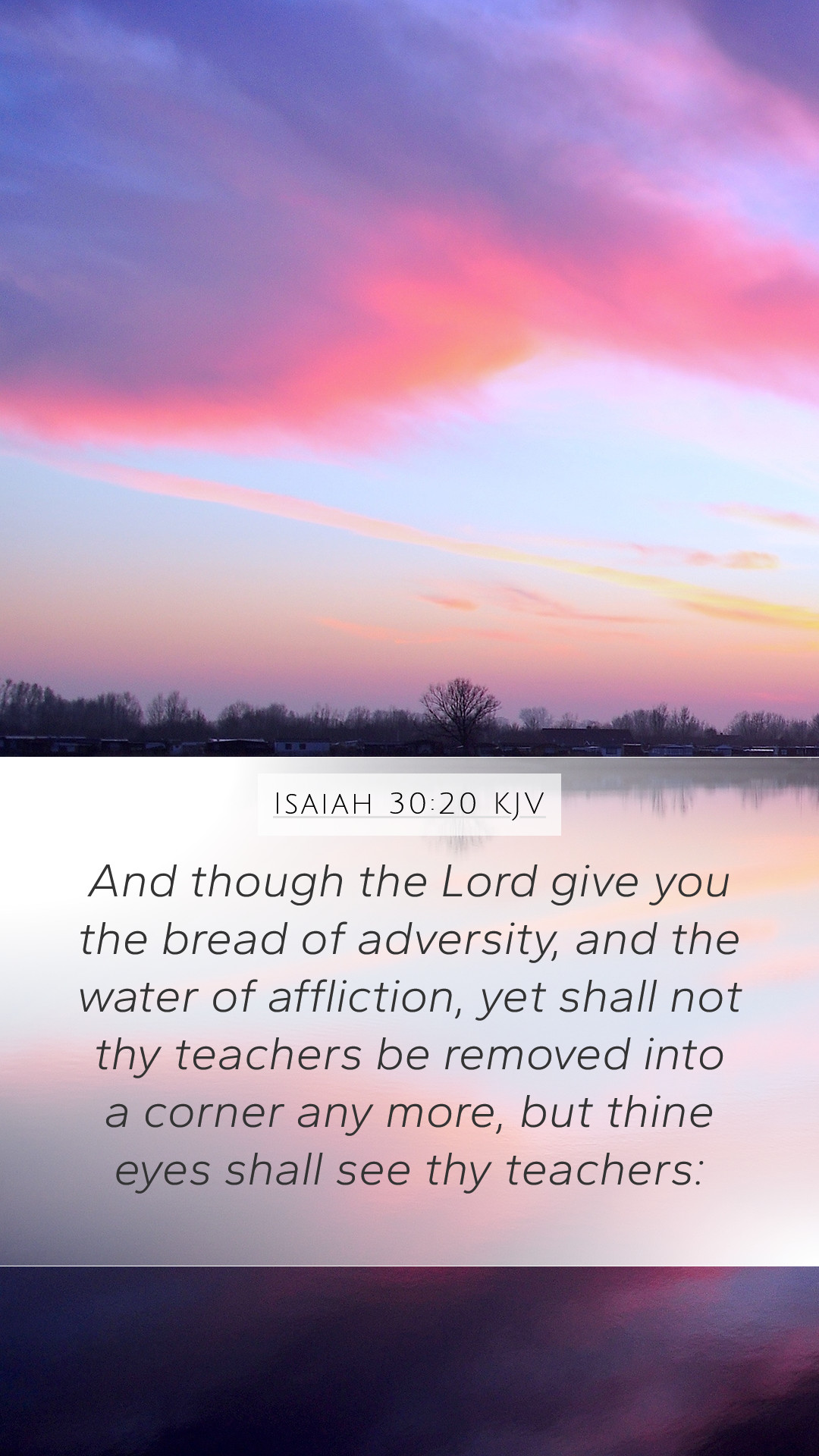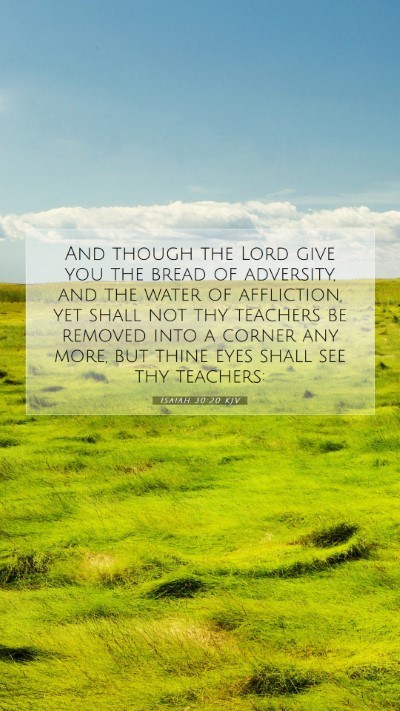Understanding Isaiah 30:20
The verse Isaiah 30:20 states:
"And though the Lord give you the bread of adversity, and the water of affliction, yet shall not thy teachers be removed into a corner any more, but thine eyes shall see thy teachers."
This passage offers profound insights into divine teaching and human suffering. Below, we will delve into the meanings of Bible verses and offer Bible verse interpretations through the lens of notable commentaries.
Contextual Overview
In Isaiah's prophecies, Israel faces trials and struggles due to its disobedience. The Assyrian threat looms large, and God's people rely on Egypt for help instead of turning to Yahweh. This particular verse serves as a reminder of God's sovereignty and care, even amid adversity.
Commentary Insights
-
Matthew Henry:
Henry emphasizes that trials come as a divine provision, acting as a means to refine and instruct God’s people. The 'bread of adversity' serves to remind them of their dependence on God, while the 'water of affliction' seeks to cleanse them spiritually.
-
Albert Barnes:
Barnes suggests that God’s promise of teachers represents the restoration of spiritual guidance. The affliction may be painful, but it is directed by God's hand, ensuring that His people will eventually receive the instruction they need from righteous leaders.
-
Adam Clarke:
Clarke interprets this verse as a comfort to the believers, assuring them that even during hardships, they will not lack for guidance. He emphasizes the importance of visible teachers who will provide both encouragement and correction in their faith journey.
Integration of Insights
In synthesizing these perspectives, we arrive at a richer Bible verse understanding. Isaiah 30:20 can be interpreted as a divine assurance that amidst suffering and tribulation, God's guidance will not be absent. Rather, it signifies a continuous presence of trustworthy spiritual leaders who will lead God's people through dark times.
Theological Implications
This verse also touches upon the broader themes of teaching and suffering found throughout scripture. It assures believers that while God's methods may include hardship, His ultimate goal is restoration and understanding. This leads us to consider how applying Bible verses to daily life could influence practical faith living.
Key Takeaways for Bible Study
- Even in adversity, God provides benevolent guidance.
- True instruction comes from recognizing the authority and presence of God.
- Faithfulness in trials builds character and reliance on God.
Additional Cross References
- Isaiah 54:13: "And all thy children shall be taught of the Lord; and great shall be the peace of thy children."
- Hebrews 12:11: "Now no chastening for the present seemeth to be joyous, but grievous: nevertheless afterward it yieldeth the peaceable fruit of righteousness unto them which are exercised thereby."
- Psalm 119:71: "It is good for me that I have been afflicted; that I might learn thy statutes."
Application in Modern Context
In our time, we can reflect on how Bible study insights and Bible study resources enhance our understanding of adversity as a part of God’s teaching process. This verse encourages believers to trust in God’s plan, regardless of their current circumstances.
Conclusion
Isaiah 30:20 serves as a profound reminder of the relationship between suffering and divine instruction. Engaging with this scripture through rigorous Biblical exegesis allows for deeper insight not only into the text itself but also into the nature of God as a guiding force in the lives of His followers.


